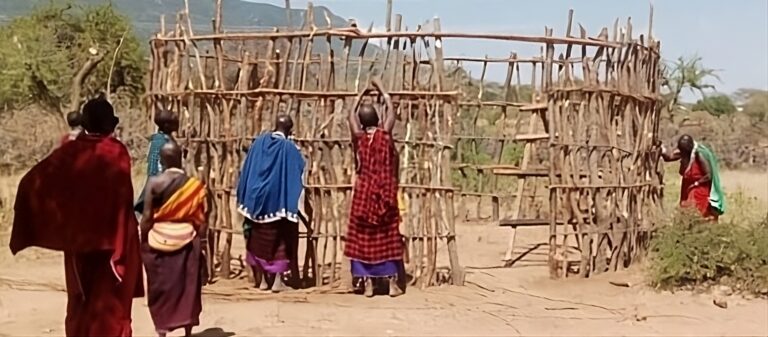
The “Traditional Knowledge on Environmental Justice” project has significantly impacted the community by revitalizing cultural practices and promoting environmental conservation. By engaging women, youth, and elders, the project has not only strengthened local traditions but also fostered sustainable environmental practices.
Revitalization of Culture and Environmental Practices
One of the key achievements of the project is the revival of positive cultural practices, such as traditional dress and language, particularly through children’s participation in music festivals. Community leaders, youth, women, and girls have actively taken part in environmental conservation efforts, such as tree planting. Women’s groups are now growing and selling tree seedlings, which has become a source of income. Additionally, the community has planted indigenous trees, including medicinal herbs, around their homes.
Partnerships and Collaboration
The project has established strong partnerships with the local government, particularly the Ministry of Environment, which has provided conservation training. Collaboration with community elders and traditional herbalists has enriched the program, as they have shared knowledge on protecting and cultivating indigenous plants. These partnerships have contributed to the project’s success and visibility, both within the community and with government bodies.
Positive Outcomes and Challenges
The project has fostered environmental awareness among children and youth, helping them reconnect with their cultural heritage. Women and youth have embraced tree planting and regularly clean water sources. However, challenges such as a lack of training venues, insufficient resources, and drought conditions have affected the project’s reach. Despite these hurdles, the community’s commitment to the project remains strong.
Sustainability and Future Steps
Monitoring and evaluation methods, including interviews, observations, and questionnaires, have been employed to track the project’s progress. The community continues to actively engage in the project, with elders leading efforts to pass down traditional knowledge to the younger generation. Moving forward, the organization plans to expand the project’s scope, ensuring no one is left behind, including people with disabilities and the elderly.
Lessons Learned
Key lessons from the project include the active involvement of youth and women in conservation efforts, a renewed interest in cultural practices, and a decrease in harmful practices like female genital mutilation. The revitalization of traditional knowledge and improved environmental conservation are clear outcomes of the project.
To enhance the project’s impact, continuous capacity building and follow-up will be crucial in ensuring long-term success and deeper community engagement.
